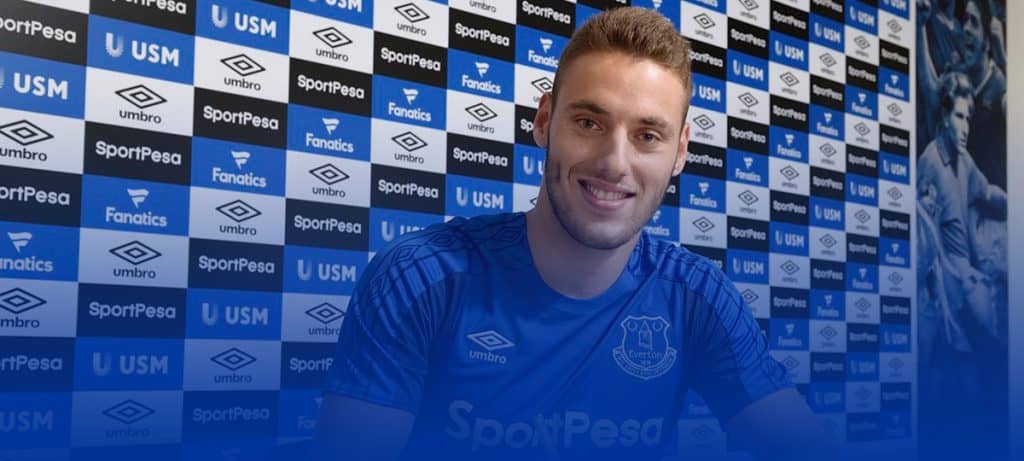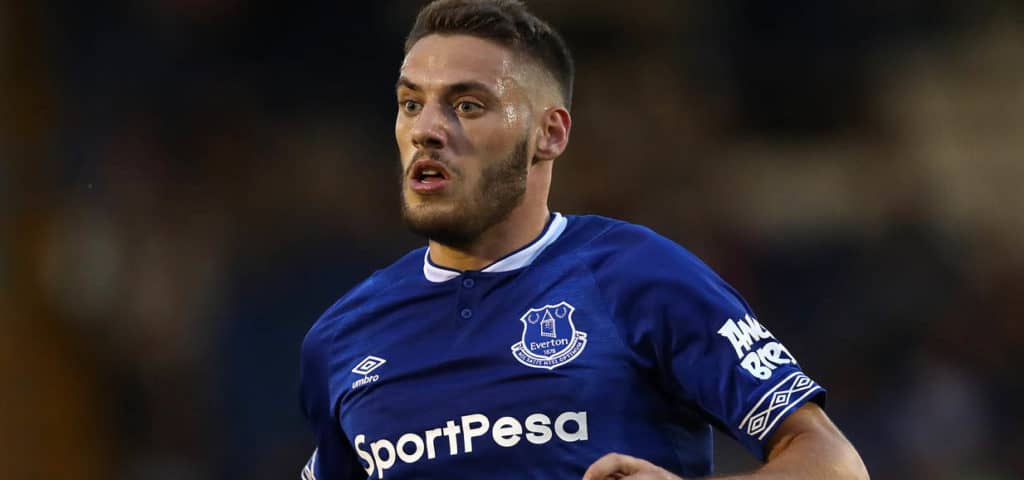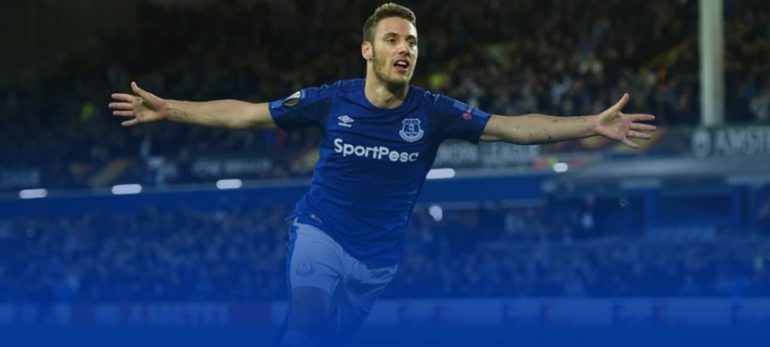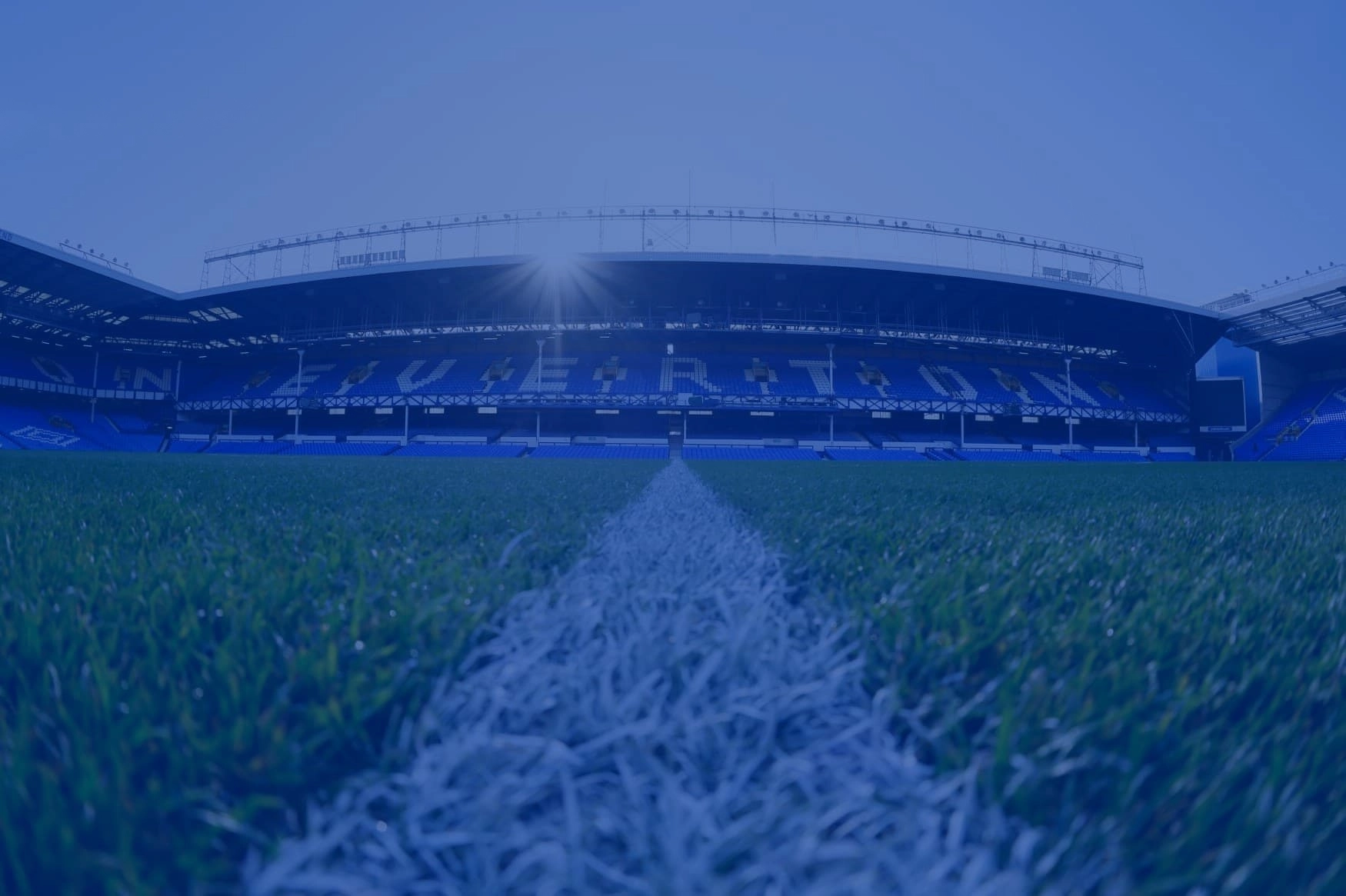In spite of his unsuccessful spell at Everton I took something of a shine to Nikola Vlasic. He seemed the exact sort of signing Everton should be trying to make, young, raw and a little under the radar. Given the horrific first year he experienced at the club it is testament to the initial profiling of him that we have made a significant profit on the deal which will only likely increase when an almost inevitable sell on kicks in. Yet understandably there will be some frustration at the fee (around £14.5 million). I had certainly hoped we could recoup more money from him but the negotiations underline the point that selling back to Europe (minus a handful of elite teams) is unlikely to see the sorts of inflated fees that are becoming more commonplace in the Premier League. Brands spoke at some length over this recently, stating we have to get deals right, as it becomes very difficult to move players back to Europe if they don’t work out here. With the growing influx of TV revenue for English teams, there is almost certainly an implicit agreement from teams on the continent that a tax is to be paid via English teams for players (in much the same way that some years ago there was a tax for players going to Manchester City or Chelsea). In such situations any initial fee you may agree to a European side, you add on a tax when being sold to England of upwards of 20%. In some ways we are the victims of being unable to find a British buyer who would pay such a tax.

It is worth noting that the fee itself, for the Russian league is a substantial one. Last season the Russian league ranked 8th in overall spend (sandwiched between the championship and the Saudi professional league) and substantially above the Dutch, Portuguese and Turkish leagues. A total of £168 million pounds was spent so the signing of Vlasic stands at about 9% of last seasons total. With the likely sell on fee it will likely be substantially over the 10% mark. To give an equivalence the Premier league spent 1.64 billion. An equivalent % of the overall figure on a player would be around £150 million pounds in our league. Likewise you have to go back to 1993 to see such a small amount spent by the Premier League on players which underlines what a commitment that CSKA have made on Vlasic.
The reality for Everton, when looking to sell players they either need to sell to the elite level of European teams (Barcelona, Madrid, PSG, Bayern, Juventus) with perhaps a couple of additional sides on top. Outside of selling to such sides it’s unlikely substantial fees are agreed. In the case of Vlasic he is still some way off being sold to one of the elite teams and though his loan move was a success I suspect it was a bit too far afield to grab the attention of Premier League teams. In that conundrum Everton sought to get as much money as possible. The frustration has to be tempered with some relief that the player didn’t end up in a Klaassen/Sandro situation whereby Everton take a substantial hit on the player.
As for matters on the field his best performances for Everton came right at the start of his time. He had shone in Europe with goals and energy in the midfield and he was arguably the biggest positive at the start of the 2017/8 season. In some ways I sense this was the worst thing that could have happened for him. When he first arrived most would have hoped for a season of transition before hopefully being ready to compete for the first team the following season. His initial positive start put to bed such cautious ideas yet expectations in him proved unrealistic. The narrative that he was one of Everton’s best players is a fair one, however it must be tempered with the realism that he was the best of a very poor bunch. The final game he played for Everton saw them concede 5 goals at home to Arsenal. It was a wretched Everton side, devoid of balance, confidence and coherency and there are doubts as to how far you could generalize from such performances.
I’ve always felt, particularly with young players you need a degree of good fortune to make an impact. Circumstances really went against Vlasic from that moment. Not only did the manager who had signed him leave the club but what followed were two managers (in different ways) who were more cautious in their approach to team selection. Unsworth went back to what he knew and who he knew, and largely omitted the entirety of the intake of 2017. While it may not have been the correct choice it was an understandable one. He had no knowledge of those players and was looking for quick results to make a pitch for managing the team. It was a reasonable decision for the most part but was perhaps most unfair on Vlasic of those players, who had (as discussed above) made a positive impression in his early starts for the team.

It quickly spiraled out of control for Unsworth and he was replaced with Sam Allardyce. Allardyce himself had never be known to be a manager who was particularly adept at blooding younger players and he too was on an immediate mission to initially move the team away from the relegation zone and then audition for the biggest job of his career. To have a young player, who didn’t know the league and would need time and patience to support him through the likely inconsistencies was not likely to be high on Allardyce’s priority list. Given his best work lay in a central midfield birth, but that he was a little lightweight and better in possession Vlasic simply didn’t fit the brief the manager wanted or the situation demanded. He would be thrown in on a rotation basis every 4-5 weeks in a wide position where he generally underwhelmed and you could see the early season confidence slipping away.
Looking on the great sadness in the story is that the relationship between the player and the club simply didn’t recover after that season in spite of a set up being appointed a year later that would have greatly benefitted Vlasic. Marco Silva has shown he is a manager not afraid to expose younger players, capable of improving them and one who is keen to play expansive football. The Director of Football clearly has a longer term vision and sees the value in younger, more erratic players being given time to develop. From the outside it looks as if Vlasic was unconvinced and wanted away. I suspect Silva felt alongside the other young players he is working with that developing Vlasic may have been a challenge too far and he would prefer the hard cash to find replacements in other areas.
What is illustrated most of all from the player leaving the club is that there is more to recruitment that simply signing good players. This may sound a bizarre and counter-intuitive statement but there are other considerations when recruiting players. How they fit into the squad, where the manager feels he can utilize them and what pathway they have into the team become important aspects for any transfer. When evaluating the Koeman/Walsh relationship it is clear that these things were really not given the consideration they ought to have been. Vlasic, like Klaassen, Rooney, Sandro, Lookman & Martina have all proven to be poor buys for Everton.
The one silver lining of the episode appears to be the harmonious structure that now exists between manager and DOF where they look to identify targets collaboratively with a clear idea of where they fit into the team. Above them there seems a clearer structure of how we can recruit players and CEO Baxendale seemed to play a supportive and helpful role to DoF Brands. The intake of 2018 all seemed to fit, and it was only really fitness issues that prevented Yerry Mina joining the other 5 who joined as being a big success story.
The club will always want more. Whenever you negotiate a deal you always want more money for players sold and to have paid less for players bought. Objectively Vlasic will almost certainly be sold for more money than CSKA bought him for and though Everton will benefit from a sell on fee it will not be to the degree CSKA will. Though they are prepared to structure their team in such a way to maximize Vlasic’s development, something it seems unlikely Everton wanted to do.
At present Everton will face some difficulties in what to do with players who are not quite good enough. As we noted the value in selling is to other Premier League teams below them, or the half dozen or so sides above them (or the 6 or so European sides). In the past they have made good use of big sales to sides wealthier than them (Rooney, Jeffers, Rodwell, Fellaini & Arteta) all provided useful funds for the club to rebuild. Until they put enough of a gap between themselves and the rest of the league it will be difficult to establish decent fees for unwanted players and this has to be the next urgent challenge for the team.



